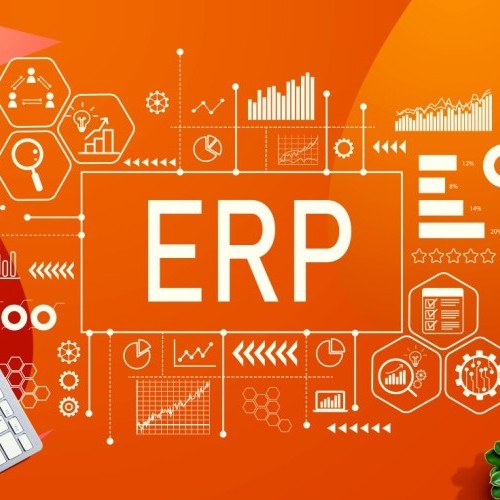
The Fast-Moving Consumer Goods (FMCG) industry is one of the most dynamic and competitive sectors globally. In such a fast-paced environment, efficiency and speed are paramount to staying ahead of the competition. Traditional methods of managing operations—spread across multiple departments, systems, and workflows—are no longer enough to keep up with growing consumer demands and market fluctuations. This is where Enterprise Resource Planning (ERP) systems come into play, offering a comprehensive solution to streamline operations and boost productivity across the entire FMCG value chain.
What is ERP for FMCG?
ERP is a suite of integrated software applications that help businesses manage their core operations such as inventory, order processing, production, logistics, and customer relationship management. In the FMCG sector, ERP systems serve as a centralized hub, providing real-time data and insights that enable businesses to make smarter decisions, reduce operational inefficiencies, and scale their operations.
Key Challenges Faced by the FMCG Industry
The FMCG industry faces several challenges that make efficient operations critical. These include:
Demand Fluctuations: Consumer demand in the FMCG sector is unpredictable, which makes inventory management a challenging task. Maintaining optimal stock levels while avoiding overstocking or stockouts requires efficient forecasting and planning.
Supply Chain Complexity: With multiple suppliers, distributors, and retailers involved in the supply chain, managing the movement of goods across various touchpoints can be cumbersome.
Short Product Lifecycles: FMCG products often have short shelf lives, requiring fast and accurate order processing and efficient distribution to minimize wastage.
Increasing Competition: As the FMCG market becomes more competitive, businesses need to improve efficiency, reduce costs, and enhance customer satisfaction to stay ahead of the curve.
How ERP Helps FMCG Businesses Overcome These Challenges
1. Efficient Inventory Management
One of the key components of any ERP system is its ability to track and manage inventory in real-time. For FMCG businesses, this is especially important given the fast-paced nature of the industry and the need to maintain optimal stock levels.
-
Real-time Visibility: ERP systems provide real-time insights into stock levels, ensuring that businesses can quickly identify which products are in high demand and which are underperforming.
-
Demand Forecasting: With ERP tools like advanced analytics and machine learning, businesses can predict demand fluctuations, plan production schedules, and reorder stock accordingly.
-
Minimizing Stockouts and Overstocking: ERP systems help businesses maintain an optimal balance by ensuring inventory levels match customer demand, thus reducing the risk of stockouts and overstocking.
2. Streamlined Supply Chain Management
The FMCG supply chain often involves multiple suppliers, warehouses, distributors, and retailers. Managing this complexity manually can lead to errors, delays, and inefficiencies. An ERP system helps streamline the entire process by offering features like:
-
Automated Order Management: ERP systems automate the order-to-cash cycle, helping businesses process and track orders efficiently from order creation to delivery.
-
Supplier Collaboration: With real-time data, businesses can collaborate more effectively with suppliers, ensuring timely procurement and reducing lead times.
-
Tracking and Monitoring: ERP allows businesses to track the movement of goods from suppliers to warehouses to retailers, helping prevent delays and ensuring on-time deliveries.
3. Improved Production Planning and Scheduling
Production planning and scheduling can be a complex task in the FMCG sector, particularly when demand is fluctuating. ERP systems help by providing:
-
Real-time Production Data: ERP systems help businesses monitor production processes, track raw materials, and ensure efficient utilization of manufacturing resources.
-
Capacity Planning: With ERP tools, businesses can analyze production capacity, optimize resources, and schedule production runs in alignment with customer demand.
-
Quality Control: ERP systems provide quality control features that enable businesses to monitor the quality of goods produced, ensuring that defective products are caught before reaching the market.
4. Optimized Logistics and Distribution
Efficient distribution is essential in the FMCG industry to ensure that products reach retailers and consumers on time. ERP systems offer logistics management tools that allow businesses to:
-
Track Shipments in Real-Time: With integrated GPS tracking and shipment tracking tools, ERP systems provide real-time updates on the location and status of shipments.
-
Route Optimization: ERP systems can help optimize delivery routes, reducing transportation costs and ensuring timely deliveries.
-
Warehouse Management: ERP’s warehouse management features help businesses automate inventory management in warehouses, ensuring that goods are stored properly and are easily accessible for shipment.
5. Enhanced Customer Relationship Management (CRM)
In FMCG, customer satisfaction is a major driver of growth. ERP systems come with CRM features that help businesses enhance customer engagement and build long-term relationships by:
-
Personalized Marketing: ERP systems store customer data, allowing businesses to run targeted marketing campaigns based on customer preferences and purchasing behavior.
-
Faster Response Times: With ERP, businesses can track customer orders and complaints in real time, ensuring quick resolution and improved customer satisfaction.
-
Loyalty Programs: ERP systems enable businesses to run customer loyalty programs, offering rewards, discounts, and personalized offers to retain customers.
6. Data-Driven Insights for Better Decision-Making
The FMCG industry operates in a fast-changing environment where staying ahead of the competition requires quick decision-making. ERP systems provide businesses with powerful data analytics tools that generate insights from real-time data. These insights can help businesses:
-
Monitor Key Performance Indicators (KPIs): ERP systems allow businesses to track KPIs such as sales, production costs, inventory turnover, and profit margins, enabling them to make informed decisions.
-
Identify Trends: With advanced analytics, businesses can identify market trends, consumer preferences, and seasonal demand variations to better prepare for the future.
-
Optimize Pricing Strategies: Data from ERP systems helps businesses adjust pricing strategies based on production costs, demand patterns, and competitor prices.

Conclusion: ERP as a Competitive Advantage in FMCG
As the FMCG industry continues to evolve, businesses need to adopt technology that enhances operational efficiency, improves customer satisfaction, and helps them stay competitive. ERP systems provide the tools necessary for FMCG businesses to streamline their operations, manage their supply chain effectively, and boost productivity.
By integrating an ERP system into their operations, FMCG businesses can navigate the challenges of demand fluctuations, supply chain complexity, and fast-paced market changes. The result is improved productivity, reduced operational costs, and better customer experiences—all crucial elements for success in today’s competitive FMCG landscape.
Al-Araf Technologies
In the highly competitive FMCG (Fast-Moving Consumer Goods) industry, Al-Araf Technologies provides ERP solutions that streamline operations, enhance productivity, and drive business growth. FMCG businesses face challenges like fluctuating demand, complex supply chains, short product lifecycles, and fierce competition.
Al-Araf’s ERP system addresses these challenges by offering:
-
Efficient Inventory Management: Real-time stock tracking, demand forecasting, and optimal inventory levels.
-
Streamlined Supply Chain: Automated order processing, supplier collaboration, and supply chain visibility.
-
Production Optimization: Real-time monitoring, capacity planning, and integrated quality control.
-
Logistics and Distribution: Shipment tracking, route optimization, and smarter warehouse management.
-
Enhanced CRM: Personalized marketing, customer satisfaction tracking, and loyalty program management.
-
Data-Driven Insights: Real-time data analytics to support informed decision-making.
With Al-Araf Technologies’ ERP, FMCG businesses can efficiently manage their operations, reduce costs, improve customer satisfaction, and stay competitive in the fast-paced market.
